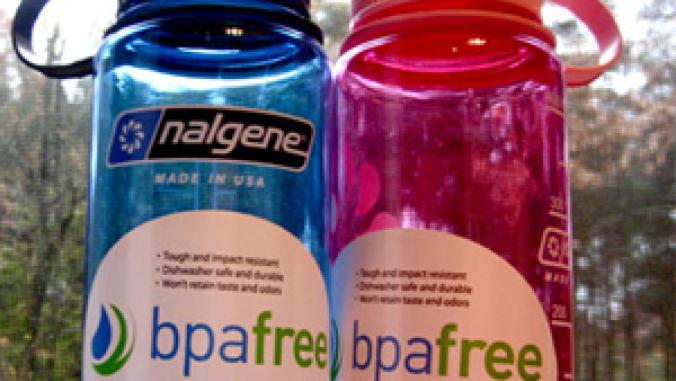Cosmetics Bill Seeks Full Ingredient Disclosure, FDA Oversight
<p> The cosmetics industry would no longer be self-regulating and would have to disclose all product ingredients under the proposed Safe Cosmetics Act, introduced earlier this week in the U.S. House of Representatives.</p> <p> <meta charset="utf-8" /></p>

Lipstick - CC license by Flickr user pawpaw67
The cosmetics industry would no longer be self-regulating and would have to disclose all product ingredients under the proposed Safe Cosmetics Act, introduced earlier this week in the U.S. House of Representatives.
The bill, which would affect all kinds of personal care products from shampoo to lipstick, would change the Food & Drug Administration's (FDA) role and current federal cosmetics law as established more than 70 years ago in the Food, Drug and Cosmetics Act of 1938. Cosmetics companies are currently the ones who determine if their products are safe, with practically no federal oversight, and they do not need to disclose all product ingredients.
The Safe Cosmetics Act would introduce a number of reforms and require companies to provide testing and safety data on their ingredients, list all ingredients on product labels and their websites, pay fees to support the FDA's Office of Cosmetics and Colors (this would only apply to companies with $1 million or more in annual gross receipts or sales), and register with the FDA annually, providing details on their products and suppliers, among other information.
"The cosmetics industry says the amounts of potentially toxic chemicals in their products are so small that they carry no risk, but we know that for some chemicals small doses can have big effects,” Dr. Maryann Donovan of the Center for Environmental Oncology at the University of Pittsburgh Cancer Institute said in a statement. “We need to better understand the short- and long-term health effects resulting from small doses of toxic chemicals, repeated daily exposures, exposures during fetal or infant development, and exposures to mixtures of chemicals in personal care products.”
As part of listing all ingredients, companies would need to reveal details of fragrances, which companies have generally held as trade secrets and been averse to disclosing. Some companies are already ahead of the bill's requirements, as about 100 companies have signed the Compact for Safe Cosmetics, an agreement to disclose all ingredients.
The FDA would be charged with creating lists of ingredients that are prohibited, restricted or "safe without limits" within two years of the bill's passage. It would also create list of chemicals that are not on those lists and that need to be assessed because there is not enough information available on their safety.
The bill would also empower the FDA to request voluntary recalls, order companies to stop distributing products or require recalls if companies use unsafe ingredients. The FDA can currently only request recalls.
If companies do not provide information to the FDA as required by the bill or use prohibited ingredients, they could be prevented from manufacturing, importing, distributing or marketing cosmetics and their ingredients.
Lastly, the FDA would publish a list of chemical and product testing methods that do not involve the use of animals.
Earlier this month, the Personal Care Products Council (PCPC), the cosmetics industry's trade group, advocated for changes to the FDA's cosmetics oversight by throwing its support behind a different bill, the Food and Drug Administration Globalization Act of 2009.
The PCPC said it feels the Safe Cosmetics Act would put too much of a burden on the FDA and create too large of a regulatory system. The group is in support of changing the FDA's oversight to require companies to register their manufacturing facilities with the FDA, disclose all ingredients to the FDA and report serious adverse effects that consumers experience to the FDA.
The PCPC also supports having the FDA require safety reviews of ingredients and set levels for trace materials in products, whether requested by the public and stakeholders or if the FDA itself determines action is needed; issue "Good Manufacturing Practices;" and review findings by the Cosmetic Ingredient Review.
Lipstick - CC license by Flickr user pawpaw67




